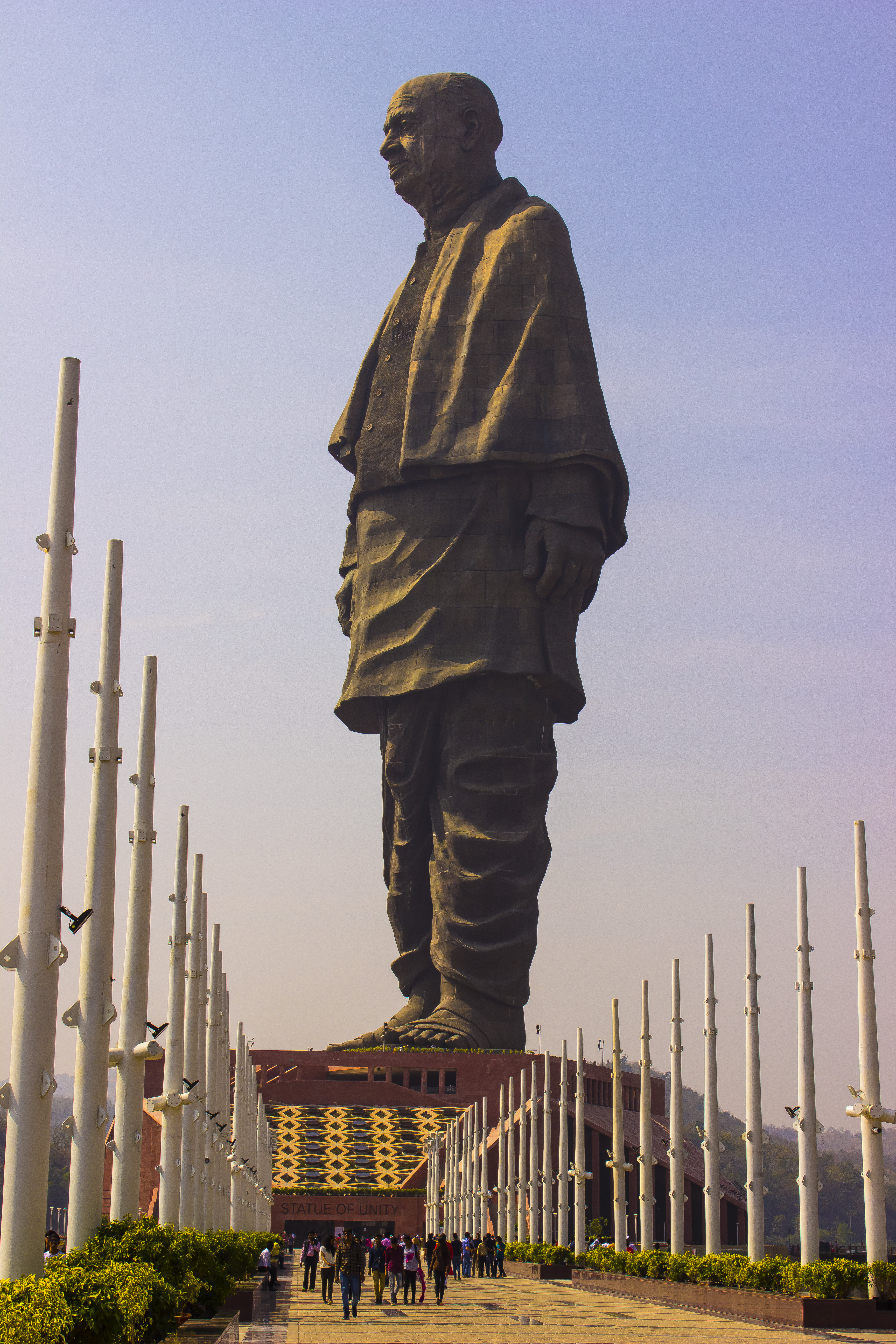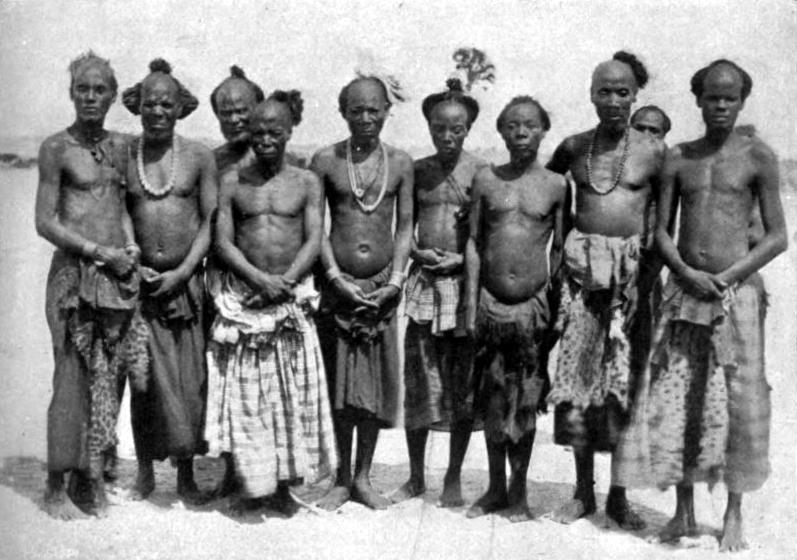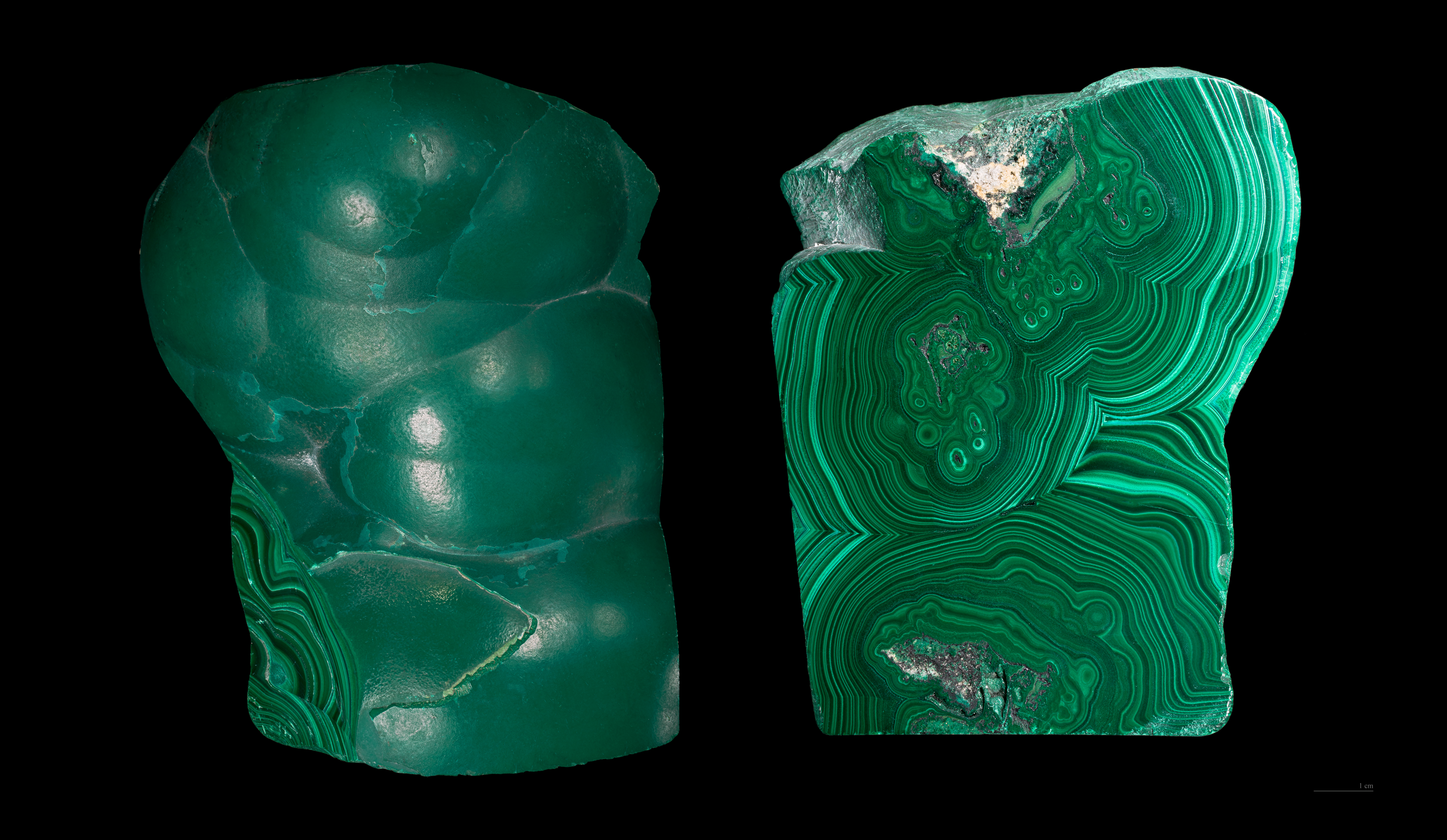|
Lulua People
A 19th century statue of a Lulua war chief, Ethnologisches Museum Berlin., thumb The Lulua people are a Bantu ethnic group settled along the Lulua River valley in south central Kasai-Occidental province, Democratic Republic of the Congo. The Lulua are in fact a collection of small groups whose home bordered by the larger Luba state and the related Songye people and Chokwe people, with whom they share a very similar culture, history, and language. Lulua lands are bordered on the south by other small ethnic groups, including the Mbagani, Lwalwa, Southern Kete, and the Salampasu. Rural Lulua remain mostly farmers. History of Lulua identity The name Lulua seems to have appeared in the last quarter of the 19th century, previously these groups simply being ethnically Luba people outside the Luba (or Baluba) political structure. Georges Nzongola-Ntalaja, in his history of Congo, describes the history Lulua ethnicity as an invented ethnicity.Georges Nzongola-NtalajaThe Congo from Leop ... [...More Info...] [...Related Items...] OR: [Wikipedia] [Google] [Baidu] |
Statue Luluwa-Musée Ethnologique De Berlin
A statue is a free-standing sculpture in which the realistic, full-length figures of persons or animals are carved or cast in a durable material such as wood, metal or stone. Typical statues are life-sized or close to life-size. A sculpture that represents persons or animals in full figure, but that is small enough to lift and carry is a ''statuette'' or figurine, whilst those that are more than twice life-size are regarded as ''colossal statues''. Statues have been produced in many cultures from prehistory to the present; the oldest-known statue dating to about 30,000 years ago. Statues represent many different people and animals, real and mythical. Many statues are placed in public places as public art. The world's tallest statue, ''Statue of Unity'', is tall and is located near the Narmada dam in Gujarat, India. Colors Ancient statues often show the bare surface of the material of which they are made. For example, many people associate Greek classical art with white marb ... [...More Info...] [...Related Items...] OR: [Wikipedia] [Google] [Baidu] |
Kingdom Of Luba
The Luba Empire or Kingdom of Luba was a pre-colonial Central African state that arose in the marshy grasslands of the Upemba Depression in what is now southern Democratic Republic of Congo. Origins and foundation Archaeological research shows that the Upemba Depression had been occupied continuously since at least the 4th century AD. In the 4th century, the region was occupied by iron-working farmers. Over the centuries, the people of the region learned to use nets, harpoons, make dugout canoes, and clear canals through swamps. They had also learned techniques for drying fish, which were an important source of protein; they began trading the dried fish with the inhabitants of the protein-starved savanna. By the 6th century, fishing people lived on lakeshores, worked iron, and traded palm oil. By the 10th century, the people of Upemba had diversified their economy, combining fishing, farming and metal-working. Metal-workers relied on traders to bring them the copper and charc ... [...More Info...] [...Related Items...] OR: [Wikipedia] [Google] [Baidu] |
South Kasai
South Kasai () was an unrecognised secessionist state within the Republic of the Congo (the modern-day Democratic Republic of the Congo) which was semi-independent between 1960 and 1962. Initially proposed as only a province, South Kasai sought full autonomy in similar circumstances to the much larger neighbouring state of Katanga, to its south, during the political turmoil arising from the independence of the Belgian Congo known as the Congo Crisis. Unlike Katanga, however, South Kasai did not explicitly declare full independence from the Republic of the Congo or reject Congolese sovereignty. The South Kasaian leader and main advocate, Albert Kalonji, who had represented a faction of the nationalist movement (the '' Mouvement National Congolais-Kalonji'' or MNC-K) before decolonisation, exploited ethnic tensions between his own ethnic group, the Baluba, and the Bena Lulua to create a Luba-focused state in the group's traditional heartland in the south-eastern parts of th ... [...More Info...] [...Related Items...] OR: [Wikipedia] [Google] [Baidu] |
Katanga Province
Katanga was one of the four large provinces created in the Belgian Congo in 1914. It was one of the eleven provinces of the Democratic Republic of the Congo between 1966 and 2015, when it was split into the Tanganyika Province, Tanganyika, Haut-Lomami, Lualaba Province, Lualaba, and Haut-Katanga provinces. Between 1971 and 1997 (during the rule of Mobutu Sese Seko when Congo was known as Zaire), its official name was Shaba Province. Katanga's area encompassed . Farming and ranching are carried out on the Katanga Plateau. The eastern part of the province is a rich mining region which supplies cobalt, copper, tin, radium, uranium, and diamonds. The region's former capital, Lubumbashi, is the second-largest city in the Congo. History Copper mining in Katanga dates back over 1,000 years, and mines in the region were producing standard-sized ingots of copper for international transport by the end of the 10th century CE. In the 1890s, the province was beleaguered from the south by ... [...More Info...] [...Related Items...] OR: [Wikipedia] [Google] [Baidu] |
Moise Tshombe
Moise is a given name and surname, with differing spellings in its French and Romanian origins, both of which originate from the name Moses: Moïse is the French spelling of Moses, while Moise is the Romanian spelling. As a surname, Moisè and Mosè are Italian spellings of Moses. Given name Moise * Moise of Wallachia (died 1530), Romanian prince * Moise Crăciun (born 1927), Romanian skier * Moise Fokou (born 1985), American football linebacker * Moise Movilă (1596–1661), Prince of Moldavia * Moise Poida (born 1978), Vanuatuan footballer * Moise Pomaney (born 1945), Ghanaian long-jumper * Moise Safra (1935–2014), Brazilian businessman and founder of Banco Safra * Moise Kean (born 2000), Italian footballer Moïse * Moïse Amyraut (1596–1664), French theologian * Moïse Brou Apanga (born 1982), Côte d'Ivoire born Gabonese footballer * Moïse Bambara (born 1984), German-Burkinabé footballer * Moïse Bebel (1898–1940), Guadeloupean soldier * Moïse Bombito (b ... [...More Info...] [...Related Items...] OR: [Wikipedia] [Google] [Baidu] |
Kasai Region
Kasai or Kasaï may refer to: Places Congo * Congo-Kasaï, one of the four large provinces of Belgian Congo * Kasaï District, in the Kasai-Occidental province of the Democratic Republic of the Congo * Kasai Province, one of the provinces of the Congo * Kasaï region in the center of Congo Japan * Kasai District, Hokkaido, a district of Hokkaido Prefecture, Japan * Kasai Rinkai Park, in Edogawa, Tokyo * Kasai Station, in the Kasai section of Edogawa, Tokyo, Japan * Kasai, Hyōgo is a city in Hyōgo Prefecture, Japan Other uses * Kangsabati River, or Kasai River in India * Kasai procedure, a pediatric surgery commonly for biliary atresia * Kasai (surname), a Japanese surname, lit. meaning "fire" Congo * Air Kasaï, an airline in Barumbu, Kinshasa, Congo * Compagnie du Kasai, a concession company of the Congo * Kasai Allstars, a 25-piece musical collective based in Kinshasa, Congo * Kasai River disaster, a passenger ferry capsized in Congo * Kasai River ... [...More Info...] [...Related Items...] OR: [Wikipedia] [Google] [Baidu] |
Albert Kalonji
Albert Kalonji (6 June 1929 – 20 April 2015) was a Congolese politician and businessman from the Luba ya Kasai nobility. He was elected emperor ( Mulopwe) of the Baluba ya Kasai (Bambo) and later became king of the Federated State of South Kasai. Co-founder, along with Patrice Lumumba, of the Congolese National Movement (MNC), he campaigned with him for the independence of the Congo. Internal disagreements led to the split of the MNC into two branches, known as MNC-Lumumba and MNC-Kalonji. In 1960, Kalonji was elected emperor of the Lubas and head of state of South Kasai by the nobility the ministers and the Kasaian people. Kalonji was crowned by the church and the Luba tribe on 12 April 1961. This de facto independence lasted until September 1962. Early life Albert Kalonji was born on 6 June 1929, in Hemptinne Saint-Benoît (currently Bunkondo) near present-day Kananga.He attended Scheut Missionaries-run Catholic schools in Lusambo before studying at an agricul ... [...More Info...] [...Related Items...] OR: [Wikipedia] [Google] [Baidu] |
Luluabourg (city)
Kananga, formerly known as Luluabourg or Luluaburg, is the capital city of the Kasai-Central Province in the Democratic Republic of the Congo and was the capital of the former Kasaï-Occidental Province. It is the fourth most populous urban area in the country, with an estimated population of 1,524,000 in 2021. The city lies near the Lulua River, a tributary of the Kasai River and the Ilebo-Lubumbashi railway. An important commercial and administrative centre, it is home to a museum and to Kananga Airport. History German explorer Hermann Wissmann established a station in the area around present-day Kananga, on the left bank of the Lulua. Wissmann named the station Malandji, a name suggested by his 400 carriers, who were from the city of Malanje in Angola. Later on, with the construction of the railway on the other bank of the river, the station was moved, and the Lulua train station gave its name to the new town, namely Luluabourg. The old location is named Malandji-Makulu ... [...More Info...] [...Related Items...] OR: [Wikipedia] [Google] [Baidu] |
Congo Crisis
The Congo Crisis () was a period of Crisis, political upheaval and war, conflict between 1960 and 1965 in the Republic of the Congo (Léopoldville), Republic of the Congo (today the Democratic Republic of the Congo). The crisis began almost immediately after the Congo became independent from Belgium and ended, unofficially, with the entire country under the rule of Mobutu Sese Seko, Joseph-Désiré Mobutu. Constituting a series of civil wars, the Congo Crisis was also a proxy war, proxy conflict in the Cold War, in which the Soviet Union and the United States supported opposing factions. Around 100,000 people are believed to have been killed during the crisis. A nationalist movement in the Belgian Congo demanded the end of colonial rule: this led to the country's independence on 30 June 1960. Minimal preparations had been made and many issues, such as federalism, tribalism, and ethnic nationalism, remained unresolved. In the first week of July, Mutiny of the Force Publique, ... [...More Info...] [...Related Items...] OR: [Wikipedia] [Google] [Baidu] |
Georges Nzongola-Ntalaja
Georges Nzongola-Ntalaja (born 3 February 1944) is a Congolese academic, author, and diplomat. He is a professor of African and Afro-American Studies at the University of North Carolina at Chapel Hill, where he specialises in African and global studies. He was also the Permanent Representative of the Democratic Republic of the Congo to the United Nations from 2022 until 2023. Biography Georges Nzongola-Ntalaja was born on 3 February 1944 in Kasha, South Kivu in the Belgian Congo. Nzongola-Ntalaja grew up at an American Presbyterian Congo Mission (APCM) station in Kasha, near the state post of Luputa. Nzongola-Ntalaja's involvement in activism began during his teenage years when he participated in protests that demanded Congolese independence from Belgium. During the 1960s civil rights movement in the United States, there were calls for Davidson College to admit Black students, and Nzongola-Ntalaja was an exchange student in Minnesota at the time with plans to attend Macal ... [...More Info...] [...Related Items...] OR: [Wikipedia] [Google] [Baidu] |
Bantu Peoples
The Bantu peoples are an Indigenous peoples of Africa, indigenous ethnolinguistic grouping of approximately 400 distinct native Demographics of Africa, African List of ethnic groups of Africa, ethnic groups who speak Bantu languages. The languages are native to countries spread over a vast area from West Africa, to Central Africa, Southeast Africa and into Southern Africa. Bantu people also inhabit southern areas of Northeast African states. There are several hundred Bantu languages. Depending on the definition of Dialect#Dialect or language, "language" or "dialect", it is estimated that there are between 440 and 680 distinct languages. The total number of speakers is in the hundreds of millions, ranging at roughly 350 million in the mid-2010s (roughly 30% of the demographics of Africa, population of Africa, or roughly 5% of world population, the total world population). About 90 million speakers (2015), divided into some 400 ethnic or tribal groups, are found in the Democratic Re ... [...More Info...] [...Related Items...] OR: [Wikipedia] [Google] [Baidu] |
Congo Basin
The Congo Basin () is the sedimentary basin of the Congo River. The Congo Basin is located in Central Africa, in a region known as west equatorial Africa. The Congo Basin region is sometimes known simply as the Congo. It contains some of the largest tropical rainforests in the world and is an important source of water used in agriculture and energy generation. The rainforest in the Congo Basin is the largest rainforest in Africa and second only to the Amazon rainforest in size, with 300 million hectares compared to the 800 million hectares in the Amazon. Because of its size and diversity the basin's forest is important for mitigating climate change in its role as a carbon sink. However, deforestation and degradation of the ecology by the impacts of climate change may increase stress on the forest ecosystem, in turn making the hydrology of the basin more variable. A 2012 study found that the variability in precipitation caused by climate change will negatively affect economic a ... [...More Info...] [...Related Items...] OR: [Wikipedia] [Google] [Baidu] |




